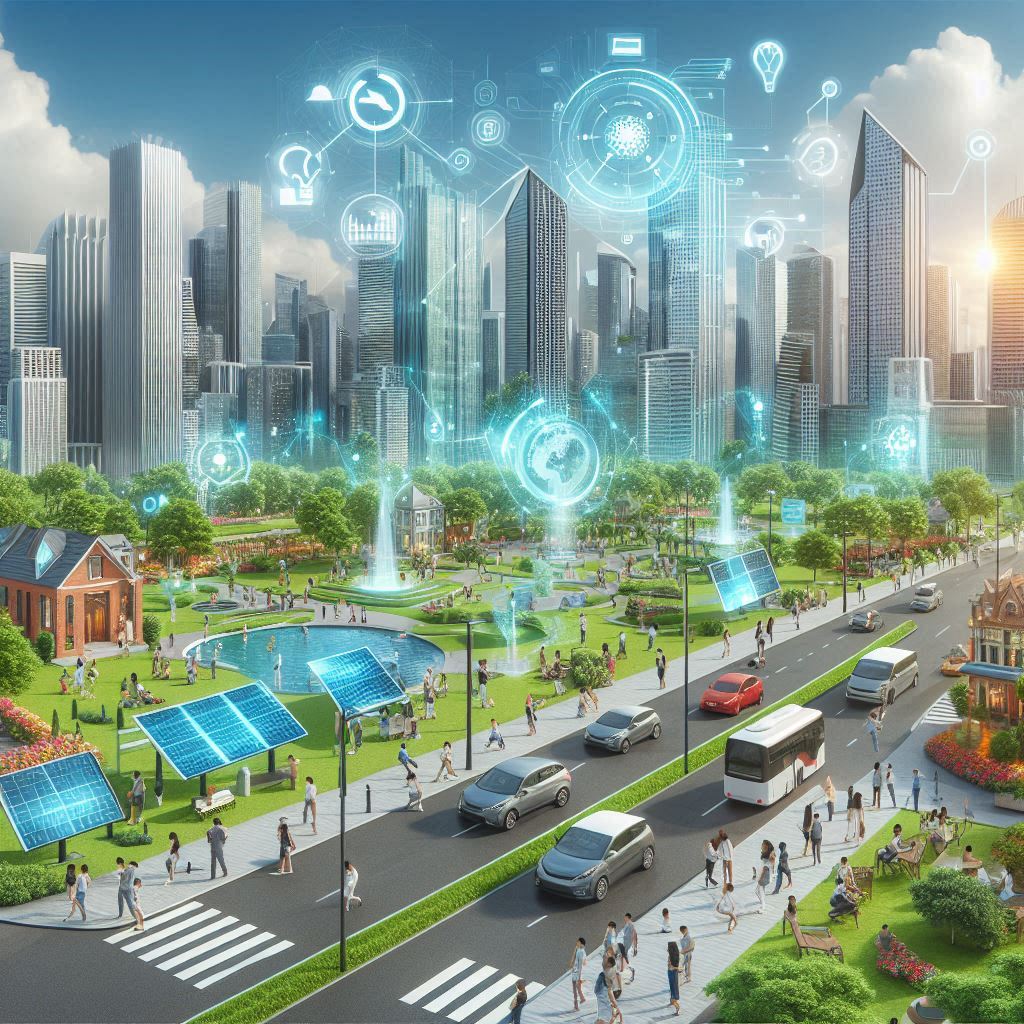In the age of rapid urbanization and digital transformation, cities around the world are adopting advanced technologies to enhance efficiency, sustainability, and the quality of life for their residents. These urban centers, known as “smart cities,” leverage data, automation, and connectivity to optimize various aspects of city life, from transportation and energy consumption to public safety and waste management. But what exactly makes a city “smart,” and what technologies drive this transformation? Let’s explore.
What Defines a Smart City?
A smart city is an urban area that integrates digital technology and data-driven solutions to improve infrastructure, services, and overall urban management. The goal is to create a more efficient, sustainable, and livable environment for citizens. Key components of a smart city include:
- Connectivity & IoT (Internet of Things): Sensors and devices collect and share real-time data to enhance decision-making and optimize city services.
- Sustainability & Energy Efficiency: Smart grids, renewable energy sources, and intelligent lighting systems help reduce carbon footprints.
- Transportation & Mobility: Smart traffic systems, autonomous vehicles, and intelligent public transport solutions enhance mobility and reduce congestion.
- Public Safety & Security: Surveillance cameras, AI-powered crime detection, and emergency response systems improve safety measures.
- Digital Governance & Citizen Engagement: Mobile apps, e-governance portals, and digital feedback systems enhance public participation and service delivery.
Technologies Powering Smart Cities
Smart cities rely on a variety of innovative technologies to function effectively. Some of the most impactful include:
1. Internet of Things (IoT)
IoT plays a fundamental role in smart cities by enabling devices to communicate and share data. Smart sensors monitor air quality, traffic patterns, water usage, and waste levels, allowing city authorities to make data-driven decisions.
2. Artificial Intelligence (AI) & Machine Learning
AI enhances city services by predicting trends, optimizing resource allocation, and automating processes. For instance, AI-driven traffic management systems adjust signal timings to reduce congestion based on real-time data.
3. 5G & Advanced Connectivity
Faster internet speeds and low-latency communication through 5G networks enable seamless connectivity for IoT devices, autonomous vehicles, and real-time monitoring systems.
4. Blockchain Technology
Blockchain enhances transparency and security in public transactions, such as digital identity verification, smart contracts, and decentralized service management.
5. Smart Grids & Renewable Energy
Smart grids optimize energy distribution by integrating renewable energy sources, improving efficiency, and reducing waste. Smart meters allow households and businesses to monitor and manage energy consumption more effectively.
6. Autonomous & Electric Vehicles
Electric and self-driving vehicles contribute to sustainable urban mobility by reducing emissions and improving traffic flow through AI-powered navigation and route optimization.
7. Big Data & Cloud Computing
Data analytics helps city officials identify patterns, predict urban challenges, and develop proactive solutions. Cloud computing provides scalable infrastructure to store and process vast amounts of city data.
The Future of Smart Cities
As technology continues to evolve, smart cities will become even more interconnected and efficient. Emerging trends such as digital twins (virtual city replicas), robotics in urban management, and the integration of augmented reality in city planning will further revolutionize urban living.
While the adoption of smart city technologies presents numerous benefits, challenges such as cybersecurity, data privacy, and infrastructure costs must be addressed to ensure equitable and sustainable urban development.
Conclusion
Smart cities represent the future of urban living, leveraging advanced technologies to create more efficient, sustainable, and livable environments. By integrating IoT, AI, 5G, and other digital innovations, cities can enhance infrastructure, optimize services, and improve the overall quality of life for their residents. As these technologies continue to evolve, the vision of truly intelligent, interconnected urban centers is becoming a reality.
